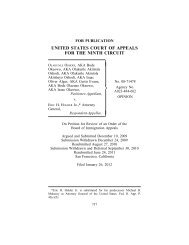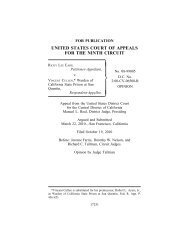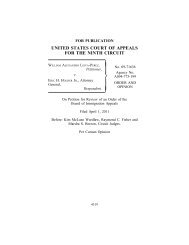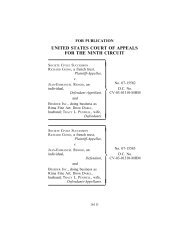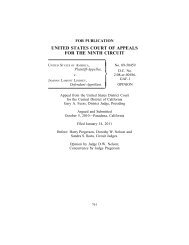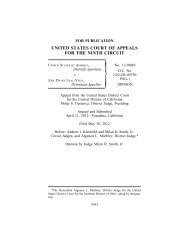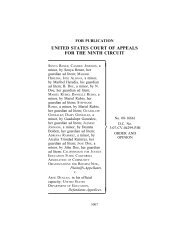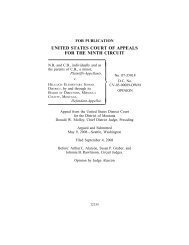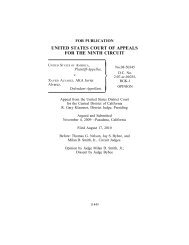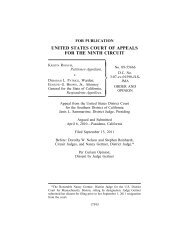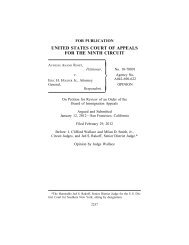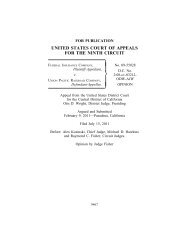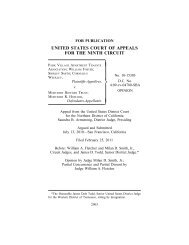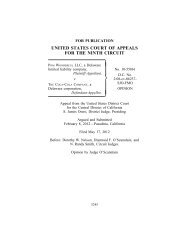UNITED STATES COURT OF APPEALS FOR THE NINTH CIRCUIT
UNITED STATES COURT OF APPEALS FOR THE NINTH CIRCUIT
UNITED STATES COURT OF APPEALS FOR THE NINTH CIRCUIT
You also want an ePaper? Increase the reach of your titles
YUMPU automatically turns print PDFs into web optimized ePapers that Google loves.
9768 PAYNE v. PENINSULA SCHOOL DISTRICT<br />
This approach differs in its critical aspects from the concept<br />
of mitigation. Although the statute states that an action may<br />
not be filed until administrative proceedings have been<br />
exhausted, it may not always be possible to determine, either<br />
at the pleadings stage or on a motion for summary judgment,<br />
whether some aspect of the alleged damages would have been<br />
addressed, in whole or in part, in administrative proceedings.<br />
Accordingly, lest the purpose of the exhaustion requirement<br />
be evaded, we should recognize that the scope of the unexhausted<br />
administrative proceedings may only become clear<br />
at trial. Of course, at that point in time it is impossible to literally<br />
enforce the exhaustion requirement. The lawsuit has been<br />
filed and presumably some aspects of the alleged damages<br />
would not have been addressed in the available administrative<br />
proceedings (otherwise the court would have already dismissed<br />
the action). In such a situation, the intent of the statute<br />
is best served by denying the plaintiff any recovery for any<br />
aspect of the alleged damages that the defendant school district<br />
shows would have been addressed in the administrative<br />
proceedings.<br />
The school district has the burden of making the requisite<br />
factual showing that an aspect of a damage claim would have<br />
been addressed in the administrative proceedings, but it need<br />
not show that the administrative proceedings would have produced<br />
a solution. Rather, if the school district shows, to the<br />
requisite degree of certainty, that the administrative proceedings<br />
would have addressed an aspect of the plaintiff’s alleged<br />
damages, the plaintiff may not recover for that aspect. In<br />
essence, if the factfinder determines that an aspect of plaintiff’s<br />
claim for damages would have been addressed by the<br />
administrative proceedings, the plaintiff has failed to exhaust<br />
the administrative procedures for that aspect. Accordingly, to<br />
enforce the exhaustion provision, the plaintiff should be<br />
barred from seeking damages for that aspect of his or her<br />
claim. This is not mitigation in the sense of reducing damages<br />
based on a plaintiff’s failure to prevent the harm, rather it<br />
enforces a statutory prerequisite to the entitlement to collect



